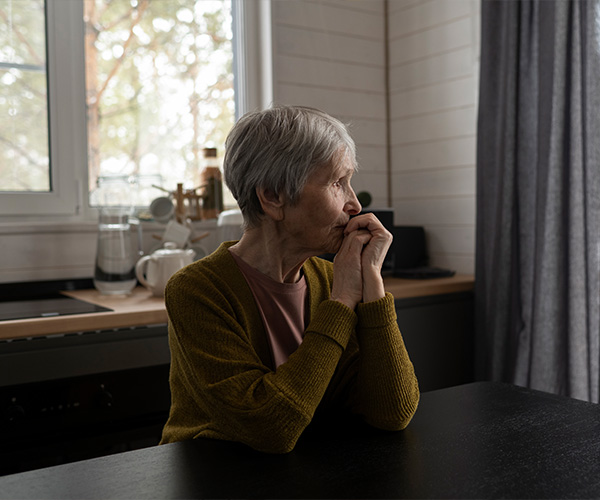Protect Yourself Or Loved Ones From Elder Abuse

The older we get, the more divergent our individual needs become. Some seniors have the good fortune to remain independent for their entire lives; many more, however, come to depend on friends, neighbors, family members and professional assistants to meet certain basic needs.
While we know our loved ones are safe with us as they grow old, we are often forced to turn to places like nursing homes and their staff for help. Unfortunately, abuses are frequently reported in many of these facilities.
If you bear some of the responsibility for a senior’s well-being, it is important to take steps to prevent them from being victimized by the assistants and medical practitioners in whom they’ve put their trust.
Not all elder abuse relates to “seniors.” Individuals who are incapacitated, or so ill or injured as to be extremely vulnerable, can become abuse victims as well.
At Wilcoxen Callaham, LLP our lawyers can help you identify potential instances of abuse and take steps to hold the responsible parties accountable, as well as prevent similar abuse in the future.
Prevent or Respond to Elder Abuse in Northern California
In California, elder abuse is defined as any act that harms or endangers an individual aged 65 or older. The abuse can take various forms, each with serious consequences. Below are the primary types of elder abuse recognized in California:
1. Physical Abuse
- Hitting, slapping, pushing, or using physical force that causes harm or pain.
- Restraining an elder improperly (e.g., tying them down or using excessive physical restraints).
- Signs include unexplained bruises, burns, fractures, or injuries.
2. Emotional or Psychological Abuse
- Verbal assaults, threats, intimidation, or humiliation.
- Isolating the elder from friends and family.
- Signs include withdrawal, fearfulness, depression, or changes in mood.
3. Financial Abuse
- Stealing money, assets, or property.
- Forging signatures on legal documents like checks or wills.
- Using an elder’s finances without permission, such as unauthorized credit card charges or transferring funds.
- Coercing or deceiving an elder into giving money or altering their estate plan.
4. Neglect
- Failing to provide basic needs, such as food, water, shelter, hygiene, or medical care.
- Ignoring an elder’s health or safety, leading to conditions like malnutrition, dehydration, or untreated infections.
- Neglect can be intentional or due to caregiver inattention.
5. Abandonment
- Deserting an elder who relies on others for care.
- Leaving the elder in unsafe or inappropriate living conditions without support.
6. Sexual Abuse
- Non-consensual sexual contact or acts.
- Forcing an elder to watch or participate in sexual activities.
- Signs include unexplained bruising or infections in sensitive areas and sudden behavioral changes.
7. Self-Neglect
- When an elder is unable or unwilling to care for themselves, leading to unsafe living conditions, poor hygiene, or untreated medical issues.
- While not abuse by another person, it is recognized as a form of elder harm that may require intervention.
8. Healthcare Fraud and Abuse
- Overcharging for medical services or billing for services not provided.
- Prescribing unnecessary treatments or medications.
- Inadequate care in nursing homes, such as improper medication or insufficient staffing.
People who abuse the elderly, the vulnerable and the incapacitated must be held accountable for their despicable behavior, as should their employers. We are experienced in handling cases of elderly abuse at Wilcoxen Callaham, LLP. We have sued liable facilities and individuals, and obtained compensation for the victims and their families.
Proven Results:
Bed Sores – $300K: Settled a case against a nursing home for failure to supervise a 91-year-old woman who died from strangulation.
Get Legal Support For The Senior Citizen In Your Life
A lawsuit won’t undo what happened, but it might make the facility change its policies and prevent it from happening again.
Contact Wilcoxen Callaham, LLP, online or call 916-442-2777 for a free consultation. We are here to help.
